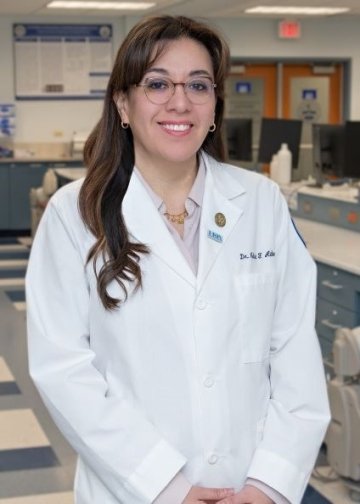
“The best way that healthcare professionals can better serve and care for their LGBTQIA+ clients and patients is by being present and being an advocate alongside them.”
Undergraduate degree: B.S., Human Development and Family Studies, University of Nevada, Reno
Hometown: Loomis, California
What inspired you to pursue a healthcare career?
I was inspired to pursue a healthcare career while I was deployed overseas during my time in the Nevada Army National Guard. During that deployment, I saw first-hand the positive impact that mental health providers had on my fellow siblings in arms. After that deployment, I returned to the States with a new life's mission in mind: becoming a psychologist in the military. The road to Midwestern University was challenging, but I made it here, studied hard, and now I am proud to say that I am the recipient of the United States Air Force Health Professions Scholarship. After receiving this incredible honor, I commissioned as a Second Lieutenant in the United States Air Force Reserves. Upon graduation and licensure, I will serve on active duty for the United States Air Force as a psychologist.
How can healthcare professionals better serve and care for their LGBTQ+ patients?
The best way that healthcare professionals can better serve and care for their LGBTQIA+ clients and patients is by being present and being an advocate alongside them. Multicultural competency is a journey, rather than a destination, so I encourage healthcare professionals to engage in self-reflective practice on their biases, attitudes, and beliefs toward members of the LGBTQIA+ community, continue to educate themselves, and find ways to be vocal advocates for the human rights of every LGBTQIA+ person in their local communities and abroad.
What is something that everyone can do to be a better ally of the LGBTQ+ community?
To be a better ally for the LGBTQIA+ community, I recommend being mindful of your own identities and how those impact your clinical judgment and your interactions with community members. Advocacy requires action; this action needs to come from members both within and outside of the LGBTQIA+ community in order to foster a safe environment that creates and promotes change for all.
What advice would you give to current LGBTQ students who are looking into a career in healthcare?
For current LGBTQIA+ students who are looking to pursue a career in healthcare, I would like to tell you to not give up. The road ahead will be challenging, exhausting, and sometimes harsh, but we need your presence and visibility within the field to continue to have the conversations that created life-altering events, like the Stonewall Riots. Chase your dreams, do not give up, and remember that you are loved for the person that you are, who you choose to love, and how you identify. You matter. Stay safe, stay healthy, and may progress march on!



